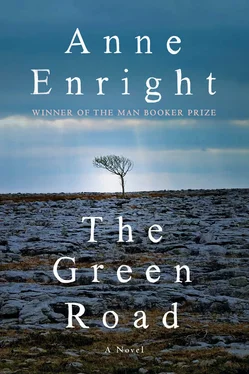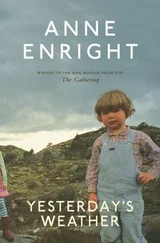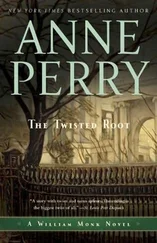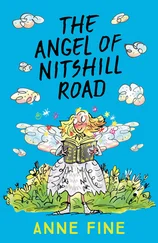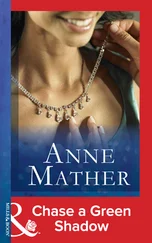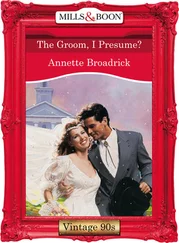‘What about?’ said Emmet, despite himself.
Hanna’s face blanked and lifted.
‘Fuck her,’ she said. ‘She just said she was worried about you. That’s all.’
‘Well, she can relax.’
Hanna decided to leave it then, but it would not be left. As soon as she tried to change the subject, it came back, in a little surge of malice.
‘Just if there was some little problem there, is all.’
She was now actually and improbably drunk, and this distracted Emmet, for two seconds, from the fact that his sister was talking about his sexual functioning, which is to say, about his erection, first of all to his mother and then to his face.
‘ What? ’ said Emmet, suddenly angry. Terribly angry.
‘That’s what she said.’
‘What did she say? What, exactly?’
But Michael McGrath was back by Hanna’s side. ‘I hope that’s a Sauvignon Blanc,’ he said, handing her another little bottle of wine.
‘Ah now,’ said Emmet.
‘Not at all,’ said the McGrath boy, who had not, in fact, brought a drink for Emmet. He stood there and settled into his own pint, sank an inch or two off the top of it, feet planted.
‘How’s herself?’ he said.
‘Good,’ said Hanna.
‘She’s fierce fit. I do see her betimes on the road.’
‘Yes,’ said Emmet. The man tilted his head.
‘You’ll be sorry, I suppose, to see the old place go?’
‘Excuse me?’
The young McGrath clearly knew something they did not, and the intimacy of that was hard to handle. The glee.
‘Great time to do it. Great timing. I had a house, now, we were doing the conveyancing on a house outside Kilfenora, handsome looking thing all right, rotten inside to the rafters, and they pulled it off the market on the Friday, put it back on on the Monday fifty grand up, and it went for over that again. Well over.’
‘How much?’
‘Ah now!’ he said. He screwed up one side of his face, and bit off an imaginary large length of toffee. A wink. ‘That’d be telling.’
‘Right,’ said Emmet.
Hanna drank with some intensity, looking directly at Michael McGrath, while Emmet thought about the hungry and the dead and about the man who stood in front of him now.
He should go back to counselling, Ireland was wrecking his head. He could feel a child’s back under his hand; the amazing small bones, the acetone smell of his dying. Where was that? What day was that?
And, as though she knew what he was thinking, Hanna said, ‘Would you jump into my grave as quick?’
‘Drink up,’ said Emmet. ‘Let’s go.’
‘You go,’ said Hanna. ‘You fucking go.’
She blinked back some tears, gave Michael McGrath a gammy, wet smile. An offer of some kind. It did not bear thinking about. As if servicing Stubby McGrath would make things better. His own sister.
‘Come on,’ said Emmet.
‘I’m very worried about me, actually .’
‘Oh for feck’s sake,’ said Emmet.
But he felt sorry for her, too, and did not object when she stopped off in the garage shop for a couple of bottles of Oxford Landing, the place jammed with people buying batteries, chocolates, alcohol.
ROSALEEN TOLD CONSTANCE she did not want a present this year. She said it in a faint voice, meaning she would be dead soon so what was the point? What was an object — when you would not have it for long? Too much? Not enough? It was hard to say.
Constance thought she was immune to this sort of guff, but she also needed to tell her mother that she was not about to die so she went up to Galway and trawled through every last thing in the shops, until she found a thick silk scarf that was the same price as a new microwave and so beautiful you could not say what colour it was, except there was lilac in there and also pearl, all of which would be perfect for her mother’s complexion and for her silver-white hair.
‘Oh I can’t remember,’ she would say when her mother asked the price, or complained about the price. Times were good. Constance bought a wheel of Camembert, various boxes of chocolates, Parma ham and beautiful, small grapes that were more yellow than green. She got her hair done in a place so posh it didn’t look done at all. Then she drove back home through the winter darkness in the smell of PVC and ripening cheese, happy in her car. Constance loved to drive. It was the perfect excuse. For what, she did not know. But there was such simplicity to it: crossing great distances to stop an inch away from the kerb, opening the door.
The next morning she was back behind the wheel, picking Dan up from the airport, depositing him in her mother’s, back in to the butcher’s and a few things around town, a poinsettia for the cleaner, a trio of hyacinths for the cleaner’s mother who was in hospital in Limerick and could not understand a thing the doctors told her. The cleaner was from Mongolia, a fact that made Constance slightly dizzy. But it was just true. Her cleaner — good hearted, a little bit vague with a duster — was from Ulan Bator. Constance left the presents with her money on the kitchen table, then back out to Ardeevin with the turkey and a quick tidy up while she was there: checking supplies, running a Hoover, though her mother hated the sound of the Hoover. After which, home to drive Shauna to a pal’s house, her fake tan leaving a shadow on the cream upholstery of the Lexus.
‘Ooofff,’ said Constance, when she saw it and then chastised her temper. That all her problems should be so small.
The next morning, she went early into Ennis. It was 10 a.m. on Christmas Eve and the supermarket was like the Apocalypse, people grabbing without looking, and things fallen in the aisles. But there was no good time to do this, you just had to get through it. Constance pushed her trolley to the vegetable section: celery, carrots, parsnips for Dessie, who liked them. Sausage and sage for the stuffing, an experimental bag of chestnuts, vacuum packed. Constance bought a case of Prosecco on special offer to wrap and leave on various doorsteps and threw in eight frozen pizzas in case the kids rolled up with friends. Frozen berries. Different ice cream. She got wine, sherry, whiskey, fresh nuts, salted nuts, crisps, bags and bags of apples, two mangoes, a melon, dark cherries for the fruit salad, root ginger, fresh mint, a wooden crate of satsumas, the fruit cold and promising sweet, each one with its own sprig of green, dark leaves. She got wrapping paper, red paper napkins, Sellotape, and — more out of habit, now the children were grown — packs and packs of batteries, triple A, double A, a few Cs. She took five squat candles in cream-coloured beeswax to fill the cracked hearth in the good room at Ardeevin, where no fire was lit this ten years past, and two long rolls of simple red baubles to fill the gaps on her mother’s tree. She went back for more sausages because she had forgotten about breakfast. Tomatoes. Bacon. Eggs. She went back to the dairy section for more cheese. Back to the fruit aisle for seedless grapes. Back to the biscuit aisle for water biscuits. She searched high and low for string to keep the cloth on the pudding, stopped at the delicatessen counter for pesto, chicken liver pâté, tubs of olives. She got some ready-cooked drumsticks to keep people going. At every corner, she met a neighbour, an old friend, they rolled their eyes and threw Christmas greetings, and no one thought her rude for not stopping to converse. She smiled at a baby in the queue for the till.
‘I know!’ she said. ‘Yes I know!’ The baby considered her fully. The baby gave her a look that was complete.
‘Yes!’ she said again, and got the curl of a sweet, thoughtful smile.
All this kept Constance occupied until the time came to unload the contents of her trolley on to the conveyor. The baby held itself so proudly erect, the young mother underneath it looked like a prop. She looked like some kind of clapped-out baby stand.
Читать дальше
